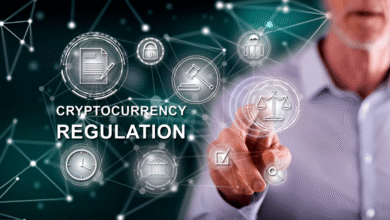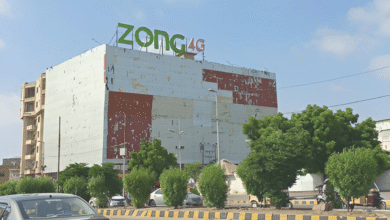Is Pakistan Ready for Blockchain? An In-Depth Look
Blockchain technology Pakistan Explore Pakistan's readiness for blockchain adoption, challenges and future potential in this in-depth analysis.

Blockchain technology is rapidly transforming industries across the globe, but is Pakistan ready for blockchain? With increasing digitalization, a young tech-savvy population, and growing interest in fintech solutions, Pakistan shows promising potential for blockchain adoption. However, challenges such as regulatory uncertainty, limited infrastructure, and low awareness pose significant hurdles. This is explores whether Pakistan can leverage blockchain to drive economic growth, enhance transparency, and improve financial inclusion.
The debate around blockchain in Pakistan is gaining momentum as both the public and private sectors explore its applications. While cryptocurrencies remain a contentious topic, blockchain’s potential extends far beyond digital currencies offering solutions for secure transactions, supply chain management, and governance. Yet, without clear regulations, reliable internet infrastructure, and widespread education, Pakistan risks falling behind in this technological revolution. Can the country overcome these barriers to fully embrace blockchain’s transformative power? This analysis delves into Pakistan’s readiness, challenges, and future opportunities in the blockchain space.
Is Pakistan Ready for Blockchain? An In-Depth Look
Current State of Blockchain Adoption in Pakistan
Pakistan’s Ready for Blockchain journey is still in its early stages, but several key developments indicate growing interest. The State Bank of Pakistan has introduced regulatory sandboxes to encourage fintech innovation, allowing startups to test blockchain-based solutions. Additionally, private companies and educational institutions are exploring blockchain applications in supply chain management, digital identity, and remittances. Cryptocurrency trading has gained popularity despite the SBP’s cautious stance, with platforms like Binance and LocalBitcoins seeing increased Pakistani users.
Challenges Facing Blockchain Adoption in Pakistan
Regulatory Uncertainty
The absence of a clear legal framework for Ready for Blockchain and cryptocurrencies discourages institutional investment. The SBP has previously banned banks from processing crypto transactions, though enforcement remains inconsistent. Without defined policies, businesses hesitate to adopt blockchain solutions.
Technological Infrastructure Limitations
Pakistan’s internet penetration is improving, but inconsistent connectivity and electricity shortages hinder blockchain deployment, especially in rural areas. High-performance blockchain networks require robust infrastructure, which is still developing.
Lack of Public Awareness and Expertise
Despite growing interest in cryptocurrencies, many Pakistanis lack understanding of blockchain’s broader applications. Educational institutions are only beginning to introduce blockchain courses, resulting in a shortage of skilled professionals.
Security and Fraud Risks
The unregulated crypto market has seen scams and Ponzi schemes, damaging trust in blockchain technology. Without proper oversight, fraudulent activities could slow adoption.
Resistance from Traditional Financial Systems
Banks and government bodies may resist decentralized systems due to concerns over financial control and money laundering risks. Collaboration between regulators and blockchain innovators is essential for progress.
Potential Applications of Blockchain in Pakistan
Financial Inclusion and Remittances
Pakistan receives over $30 billion in remittances annually. Blockchain can reduce transfer costs and processing times, benefiting millions of overseas workers. Projects like Ripple’s cross-border payment solutions could revolutionize remittance flows.
Transparent Governance and Anti-Corruption
Ready for Blockchain immutable ledger can enhance transparency in public sector projects, reducing corruption in land records, voting systems, and government contracts. Punjab’s land registry pilot is an early example.
Supply Chain and Agriculture Tracking
Pakistan’s agriculture sector can leverage blockchain to track produce from farm to market, ensuring authenticity and reducing middlemen. Textile exporters could also use it to verify ethical sourcing.
Digital Identity Verification
Millions of Ready for Blockchain lack official identification. Blockchain-based digital IDs can provide secure access to banking, healthcare, and government services for underserved populations.
Healthcare and Education Records
Secure, decentralized record-keeping can streamline patient histories and academic credentials, reducing fraud and improving efficiency in critical sectors.
Government and Private Sector Initiatives
Pakistan’s government has shown cautious optimism toward Ready for Blockchain. The Ministry of IT’s “Digital Pakistan” vision includes exploring blockchain for public services. Meanwhile, startups like Tally and Bazaar are experimenting with blockchain for SMEs and supply chains. Universities like LUMS and NUST are introducing blockchain courses, fostering local talent. International collaborations, such as partnerships with Dubai’s blockchain initiatives, could accelerate Pakistan’s learning curve.
Future Prospects of Blockchain in Pakistan
Regulatory Evolution and Policy Framework
The future of blockchain in Pakistan largely depends on the development of clear, progressive regulations. The government needs to establish a balanced legal framework that encourages innovation while protecting consumers. Recent discussions around digital asset regulation and the State Bank of Pakistan’s (SBP) evolving stance on cryptocurrencies suggest that policymakers are gradually recognizing blockchain’s potential. A well-defined regulatory environment could attract foreign investment and foster local blockchain startups.
Financial Inclusion and Digital Payments
Blockchain has the potential to revolutionize Pakistan’s financial sector, particularly in expanding access to banking services. With nearly 100 million unbanked adults, decentralized finance (DeFi) solutions could provide secure, low-cost alternatives to traditional banking. Stablecoins and blockchain-based remittance systems could drastically reduce transaction costs for overseas Pakistanis, who send billions in remittances annually.
Government and Public Sector Adoption
Transparent governance is a critical area where blockchain can make a significant impact. Future applications may include secure digital identities, tamper-proof land registries, and fraud-resistant voting systems. Pilot projects, such as Punjab’s blockchain-based land record initiative, could pave the way for broader government adoption. If successful, blockchain could help reduce corruption, streamline bureaucracy, and improve public trust in institutions.
Enterprise and Supply Chain Integration
Pakistan’s key industries agriculture, textiles, and manufacturing could benefit from blockchain-powered supply chain solutions. Smart contracts and immutable ledgers can enhance traceability, reduce fraud, and optimize logistics. As global trade increasingly demands transparency, Pakistani exporters who adopt blockchain early may gain a competitive edge. Future growth in this sector depends on private-sector willingness to invest in blockchain infrastructure.
Education and Workforce Development
For blockchain to thrive, Ready for Blockchain must develop a skilled workforce. Universities and technical institutes are beginning to introduce blockchain courses, but more comprehensive programs are needed. Public-private partnerships could facilitate training initiatives, hackathons, and incubators to nurture local talent. As blockchain expertise grows, Pakistan could position itself as a regional hub for blockchain development and innovation.
Challenges and Risks Ahead
Despite its potential, blockchain adoption in Pakistan faces hurdles such as energy shortages, internet accessibility gaps, and resistance from traditional financial institutions. Cybersecurity threats and the risk of unregulated cryptocurrency speculation also pose concerns. Addressing these challenges will require coordinated efforts between policymakers, tech leaders, and financial regulators to ensure sustainable and secure blockchain integration.
Global Positioning and Regional Leadership
If Pakistan successfully implements blockchain solutions, it could emerge as a leader in fintech and digital governance within South Asia. Strategic partnerships with blockchain-friendly nations like the UAE and Singapore could accelerate knowledge transfer and investment. By embracing blockchain responsibly, Pakistan could enhance its global tech reputation and attract international blockchain-based enterprises.
Read More: Tech Unboxing: Latest Gadgets Launched in Pakistan This Month
Conclusion
Is Pakistan ready for blockchain? The answer lies somewhere between cautious optimism and pragmatic realism. While the country possesses key ingredients for blockchain adoption a large youth population, growing tech ecosystem, and increasing digital financial transactions significant barriers remain. Regulatory uncertainty, infrastructure limitations, and lack of widespread technical expertise continue to hinder progress. However, the potential benefits for financial inclusion, supply chain transparency, and government services suggest blockchain could play a transformative role if these challenges are addressed systematically.
The path forward requires collaborative efforts between regulators, financial institutions, and tech innovators. Ready for Blockchain in Pakistan needs clear regulatory frameworks, targeted educational initiatives, and pilot projects demonstrating real-world utility. As global blockchain adoption accelerates, Pakistan stands at a critical juncture it can either embrace this technology to leapfrog development challenges or risk being left behind in the digital revolution. The next few years will be decisive in determining whether blockchain becomes a catalyst for progress or remains an underutilized opportunity in Ready for Blockchain digital landscape.
FAQs
Is Ready for Blockchain legal in Pakistan?
Blockchain itself is not illegal, but cryptocurrency regulations remain unclear. The State Bank of Pakistan restricts banks from dealing in crypto, but trading continues on peer-to-peer platforms.
How can blockchain help Pakistan’s economy?
Blockchain can improve remittances, reduce corruption, streamline supply chains, and enhance financial inclusion, boosting economic efficiency.
What are the risks of blockchain adoption in Pakistan?
Key risks include regulatory uncertainty, security threats, scams, and resistance from traditional financial institutions.
Are there any blockchain startups in Pakistan?
Yes, startups like Tally and Bazaar are exploring blockchain for SMEs and supply chains, while fintech firms experiment with payment solutions.
Will Ready for Blockchain create jobs in Pakistan?
Yes, as adoption grows, demand for Ready for Blockchain developers, analysts, and legal experts will rise, creating new career opportunities in tech.











